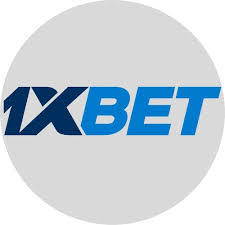
Entering the world of online wagering requires more than instinct or luck — it demands discipline, knowledge and the right platforms to apply your ideas. One such platform that many bettors encounter is sport betting 1xbet japan, but wherever you choose to place your wagers, the fundamentals remain the same: identify value, manage risk, and keep emotions in check.
At its core, sport betting is the process of assigning value to uncertain outcomes and finding instances where the market price (the odds offered by bookmakers) understates the true probability of an event. Professional punters think in probabilities rather than predictions. Instead of asking “who will win?” they ask “what is the true probability of each outcome, and does the bookmaker offer odds that represent positive expected value?” Learning to convert odds into probabilities and comparing those to your model or informed view is the first step toward consistent success.
Bankroll management is arguably the single most important discipline for any bettor. Treat your betting bank as a long-term investment portfolio: decide on a fixed percentage to stake per bet (commonly between 1% and 5% depending on your confidence and variance tolerance). Flat staking reduces the risk of ruin and helps smooth out inevitable losing runs. Kelly criteria and fractional Kelly approaches can optimize growth if you have a reliable edge, but these require precise estimation of edge size and can be volatile if misapplied.
Market selection matters. Major football matches and big-market events have heavy bookmaker attention and sharp lines, which makes finding mispriced odds harder. Niche markets like lower-division football, certain tennis circuits, esports, or regional leagues can offer more inefficiencies because fewer expert eyes analyze them. However, niche markets may also have less reliable data and more bookmaker limitations, so balance accessibility with edge potential.

Developing a betting model is a practical way to formalize your edge. Models range from simple ELO or Poisson-based expected goals systems to complex machine learning frameworks that incorporate player availability, weather, travel schedules and match-level context. The goal isn’t to build a perfect predictor — it’s to produce probability estimates that are accurate enough to detect differences between your implied odds and the market’s. Backtesting, cross-validation and out-of-sample testing are essential to avoid overfitting and to understand historical performance across different conditions.
Value betting is where profit is made. A value bet occurs when your estimated probability implies fair odds that are higher than the bookmaker’s offered odds. For example, if your model estimates a 40% chance of an outcome (implying fair odds of 1/0.4 = 2.5 or +150), and the bookmaker offers 2.8 (+180), you have positive expected value. Staking proportional to your estimated edge increases long-term profits, but be mindful of variance and the possibility of bookmakers limiting accounts if you consistently beat their lines.
Live or in-play betting adds another dimension. Markets move rapidly during matches in response to events — goals, injuries, substitutions, momentum shifts. Successful live bettors have fast data feeds, an understanding of how game states affect probabilities, and the discipline to avoid chasing adrenaline-fueled decisions. Look for systematic patterns, such as overreactions to minor events or delays in odds updates following officiating decisions. Live betting can also offer hedging opportunities for pre-game positions.
Odds formats differ by region and preference: decimal, fractional and American. Learn to convert between them quickly and to translate odds into implied probabilities (accounting for the bookmaker margin or “overround”). Comparing odds across several bookmakers and using odds aggregation tools lets you find the best price and sometimes guaranteed arbitrage opportunities, although arbitrage opportunities are rare and often short-lived in modern markets.
Line shopping — having access to multiple bookmakers or exchanges — is essential. A small difference in price on a single bet compounds over many wagers. Use odds comparator services and maintain accounts with reputable, regulated bookmakers. Consider also betting exchanges where you can both back and lay outcomes, often with lower margins and the ability to trade positions mid-event.

Bonuses and promotions are attractive but require careful reading of terms and wagering requirements. Welcome bonuses, free bets and enhanced odds can provide added value if you meet rollover conditions efficiently. However, avoid being led into placing bets that don’t align with your model or value criteria just to unlock a promotion — the long-term cost often exceeds the short-term perceived benefit.
Discipline and emotional control separate recreational bettors from winners. Tilt — the emotional state following losses that prompts irrational betting — can devastate a bankroll. Set loss limits, take scheduled breaks, and review bets objectively. Maintain a betting diary documenting rationale, stake size and outcomes; periodic reviews reveal strengths, weaknesses and behavioral biases.
Legal and regulatory considerations vary widely by jurisdiction. Always bet with licensed operators in your country and understand tax implications on winnings. Responsible gambling tools exist for a reason: deposit limits, cooling-off periods and self-exclusion options protect bettors from harm. If gambling causes stress or financial strain, seek professional support or contact licensed gambling help organizations.
Finally, continuous learning pays. Follow injury reports, transfer news, coaching changes and schedule congestion; these details move markets and influence outcomes. Engage with analytics communities, read research on market efficiency and sports modeling, and refine your approach based on evidence rather than anecdotes. Keep expectations realistic: even the best approaches experience losing streaks, but over many bets, disciplined methods that focus on value and variance management tend to prevail.
Sport betting is a skill that combines statistical thinking, market understanding and psychological discipline. By focusing on value identification, conservative bankroll strategies, careful market selection and continuous improvement, you can transform betting from guesswork into a systematic activity with a measurable edge. Remember to bet responsibly, treat it as a long-term endeavor, and prioritize the preservation of capital while seeking sustainable profitability.


